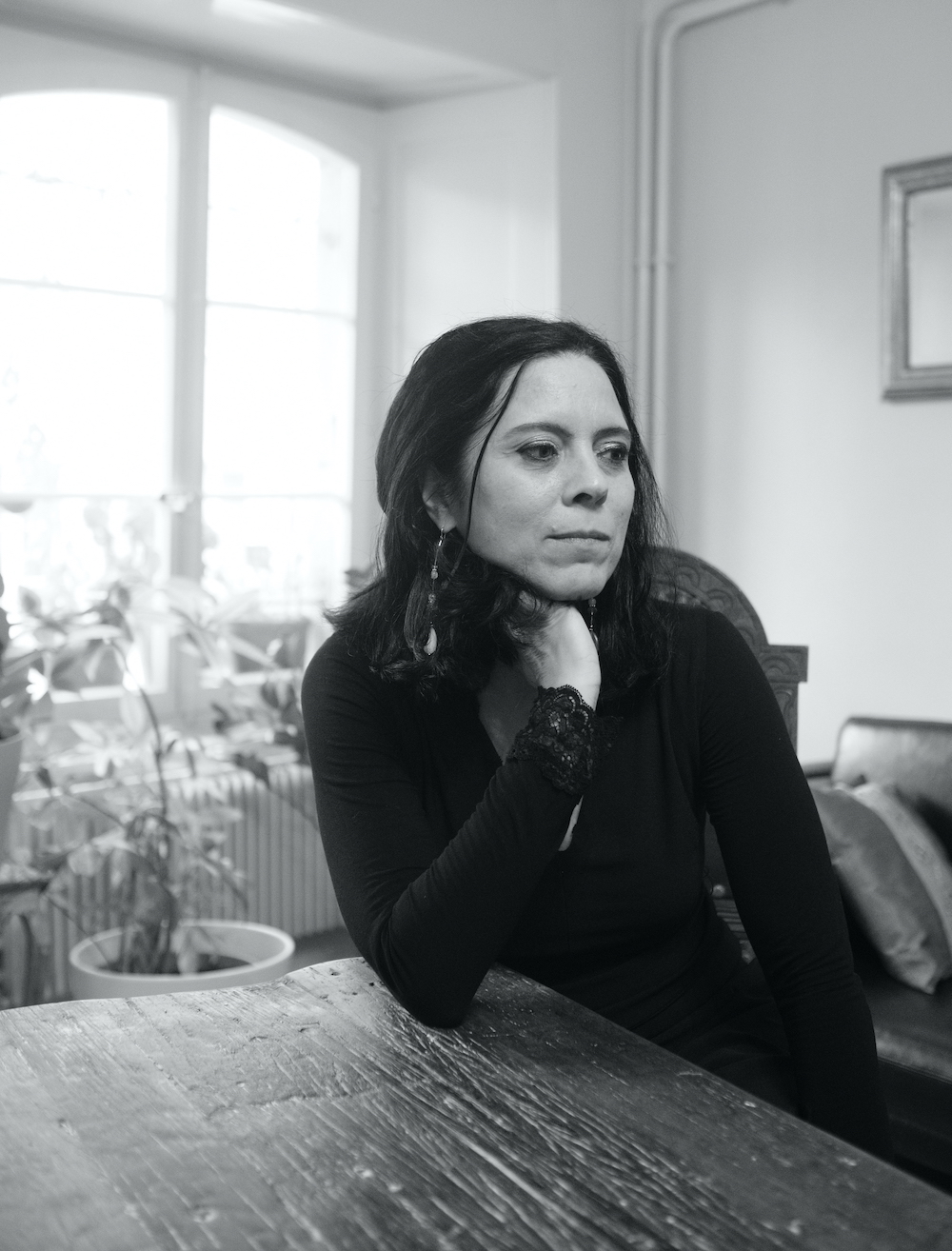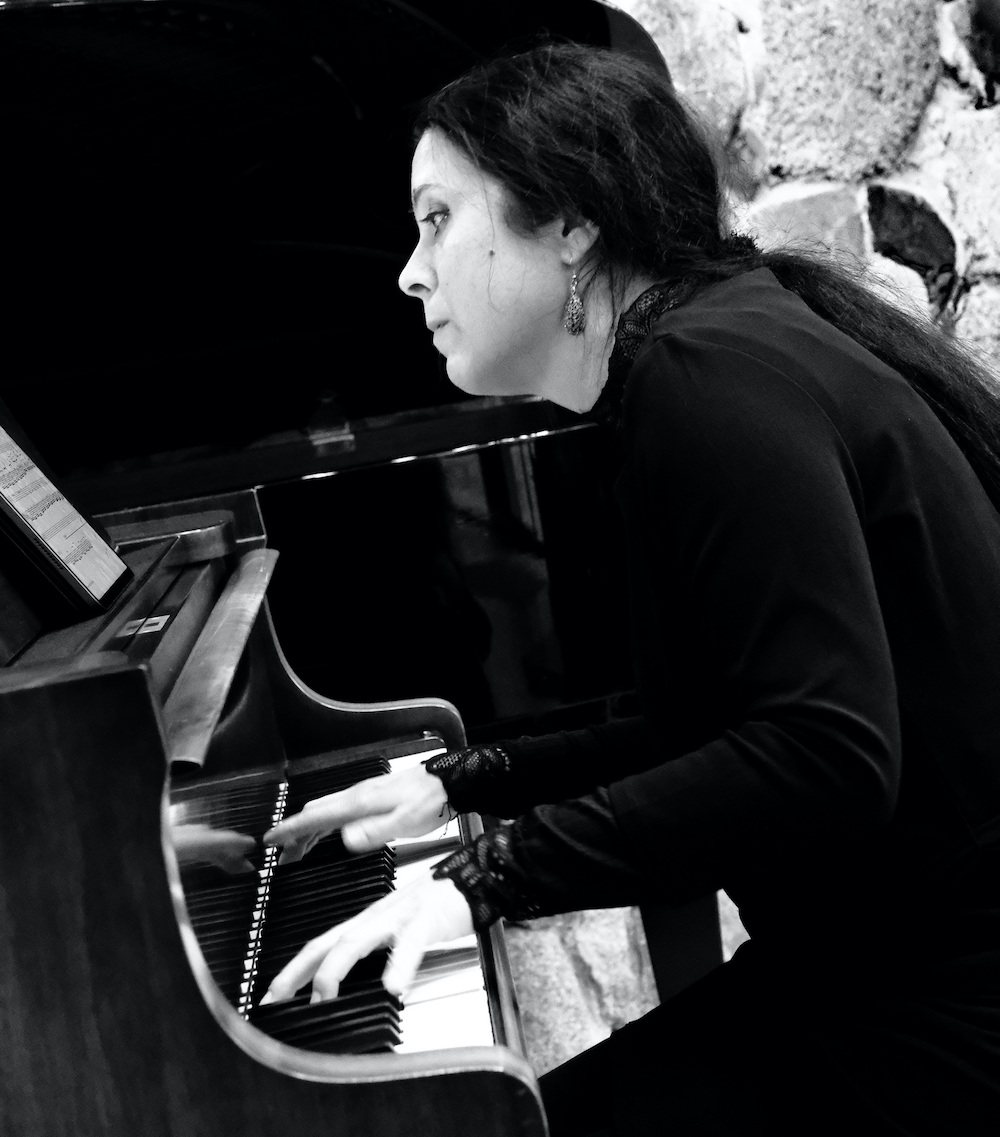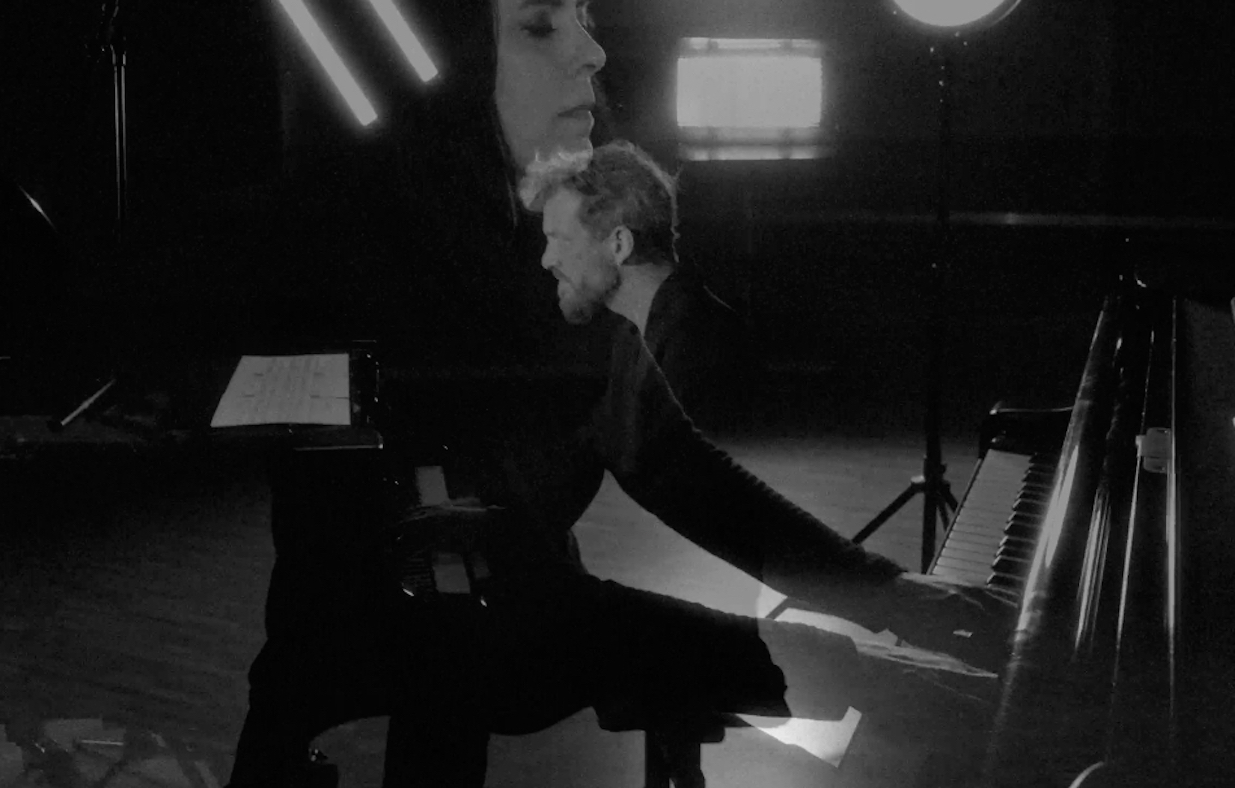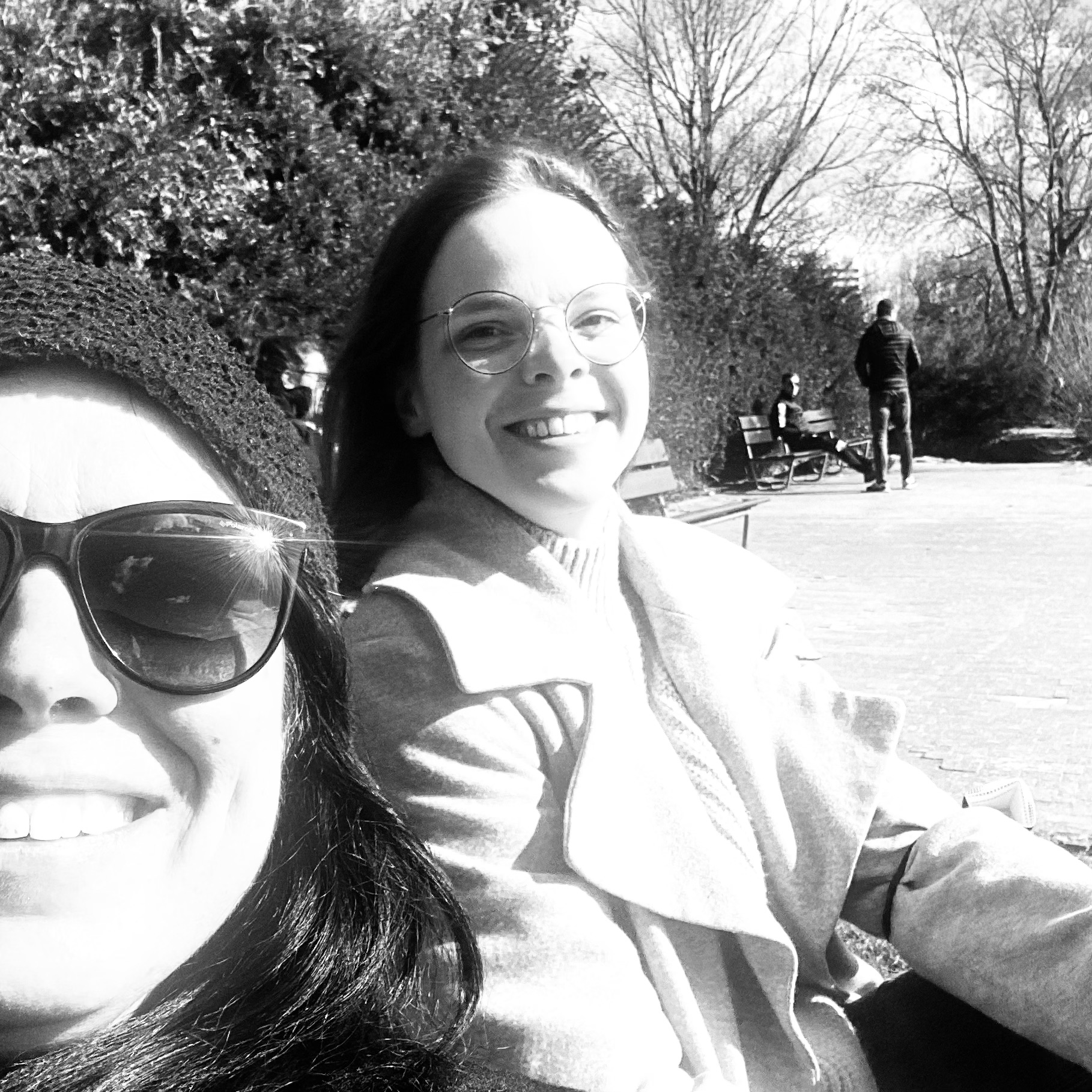Biel pianist Judith Wegmann gets to the core of time in music. So deeply that it almost ceases to exist. Whether in works by Morton Feldman, in her own improvisations or in her lively ensemble activities: Judith Wegmann is someone you should take the time to listen to.

Friedemann Dupelius
“I never used to record anything and was always devoted entirely to the live aspects of music,” says the musician, who was born in the canton of Zug and now lives in Biel. “That changed in 2016 when I was hospitalised for several weeks and therefore couldn’t play the piano for months. I really missed music as both a daily purpose and language.” As a musician who otherwise cultivates a daily relationship with her instrument, this six-month period must have felt almost endless.
“I therefore developed a strategy to still be able to deal with music and guide my thoughts in a positive direction by mentally sketching out concepts for my Le souffle du temps album. When I was finally able to go back to my studio after months, I withdrew for several weeks to realise the album. Without much previous experience, I recorded and mixed it myself.”
In her improvisation Reflexion IV from 2019, Judith Wegmann continues her project Le souffle du temps as an original composition from the moment.
The concept of time in music has been a major focus of Judith Wegmann’s work for over ten years. We all know that music is the art of time. However, Wegmann’s deep chronopoetic drilling takes her to the very core of this simple truth – to the point where time ceases to be measured, or strict metering.
“I’ve started playing very long concerts – two hours on average. It’s important to me to create a cosmos for the audience and for myself, where one can slow down for a moment and forget about everything else.” The pace being fast in this age of social media, for Wegmann, concerts can constitute a calm antithesis.
The breath of time
Judith Wegmann is a night person. She gets active in the afternoon and spends whole evenings and nights playing the piano in her studio. “For me, it is like a spiritual balm – relaxation and slowing down. The studio is on the 2nd basement floor, there’s no phone reception or internet connection, you can’t reach me there. When I play, I don’t think anymore.”

Time expansion and deceleration being one of the defining elements of her work – interpersonal relationships are the other, just as important. Le souffle du temps entered its second round with her Réflexion project, for which she asked composers whom she personally appreciates to respond to her music. For example, there is Edu Haubensak, whom Judith Wegmann holds in high regard.
Edu Haubensak wrote a Réflexion (2019) for Judith Wegmann with the piece Manga. The collaboration between the two will continue in 2024.
And it became an intergenerational project as well. The 86-year-old Daniel Andres is not only Wegmann’s neighbour in Biel, “but also a wonderful and inspiring composer. I have a gut feeling for who I can work well with. I’m almost never wrong. There simply needs to be a common level of basic understanding of life, as individual as everyone is.”
Daniel Andres’ cycle: Souvenir d’un instant was also created as a reaction to Le souffle du temps by Judith Wegmann.
Morton Feldman and Judith Wegmann never got to know each other, theirs is therefore an abstract relationship, fueled exclusively by the music Feldman left behind. In his music too, time and how it can be cancelled out, is an essential aspect. “I’ve even used a calculator to try to mathematically analyse and learn to understand the complex rhythmic structure of Feldman’s music so that I could embody it in the first place. In the end, however, I can hardly explain it. There are numerous repetitions in this music with their immense durations. The experience of them during the concerts as well as the physical changes that occur are incredible.”
Judith Wegmann also worked intensively on finding the appropriate touch for Feldman’s works, which oscillate between the finest piano and pianissimo gradations. Although the piano pedal remains in use at all times, the individual notes still require precise touches to shape the sound.
Judith Wegmann has played almost all of Morton Feldman’s piano works, including Triadic Memories (1981). For the future she has planned the trio For Philip Guston (1984) for flute, drums and piano.
I ask Judith Wegmann whether she noticed an increased interest in contemplative music among audiences in the last few crisis-ridden years – as that is what I’ve noticed. “It’s always been a rather small audience for more experimental programmes, also because I’ve been organising almost all my concerts myself for years. I mainly play in art centres, which is where I feel Feldman’s music and experimental music projects generally fit in best. The audience can move around freely. People are happy to accept that and always do so with a keen sense for the music.”
Judith Wegmann plays Canto Ostinato (1976) by Simeon ten Holt, together with the pianist Simon Bucher (rehearsal recording, 2023, excerpt).
Wegmann’s concerts featuring music by Philip Glass, those with more classical programmes – as well as the ones with Canto Ostinato for piano duo by Simeon ten Holt – were very well received. Completed in 1976, the latter piece is something of a hit in the composer’s native Netherlands. “I came across it through studying the Glass etudes. I think Canto Ostinato is very beautiful, its melodic simplicity really touched me. Anyway, I go to so many different concerts – punk, garage rock, psychedelic, classical and I can draw something from all of them. Canto Ostinato consists of over 100 cells that the interpreter can repeat as often as he likes. A performance could last six hours, but together with my duo partner Simon Bucher we manage about two hours. It’s a very intimate performance situation. Eye contact with the partner decides when the next pattern begins. The piece requires a high level of concentration while playing and is still very quiet to listen to.” When asked about Simon Bucher, with whom she plays Canto Ostinato, Wegmann speaks very highly: “He has such a beautiful sound! Working with him is musically and personally very enriching.”

Landing on the same note
She has equally affectionate words for pianist Marlies Debacker, her Cologne collaboration partner.
Judith Wegmann and Marlies Debacker on the joint album things in between, recorded in Biel in 2021.
An organiser thought it would be a good idea to put the two of them, unbeknownst to each other, on two grand pianos for a duo improvisation. And the idea was good: “We ended the performance on the same note. No words were needed, that came afterwards. Like me, Marlies is musically versatile. She plays classical, jazz as well as new music and on top of it, she has a good feel for archs of tension. For me it was like a symbiosis right from the start. When we listened to a common recording, I couldn’t always tell who was playing what.”
Friedemann Dupelius

Canto Ostinato (1976) by Simeon ten Holt, interpreted by Judith Wegmann, full length
Judith Wegmann, Simon Bucher, Marlies Debacker, Daniel Andres, Philip Glass, Edu Haubensak, Morton Feldman, Simeon ten Holt, Hat Hut Records, Bruno Duplant, New3Art.
Upcoming events:
17.2.2024 Duo with Marlies Debacker, Raum für Musik Zoglau (D)
28.2.2024 Guest performance for Ensemble 5 (4+1), WIM Zürich
Upcoming Releases:
Three new CDs by Judith Wegmann will be released in 2024:
Kont.Takte with Ensemble New3Art features Karlheinz Stockhausen’s Kontakte, a commissioned work by Antoine Chessex (Geschichten der Gewalt) and an improvisation, co-produced by SRF2Kultur.
There is also a recording of Philip Glass’ Etudes and the CD univers paralleles II with sound designer und composer Bruno Duplant. All are released by the label Hat Hut (ezz-thetics).
Neo-profiles:
Judith Wegmann, Daniel Andres, Edu Haubensak, Antoine Chessex

